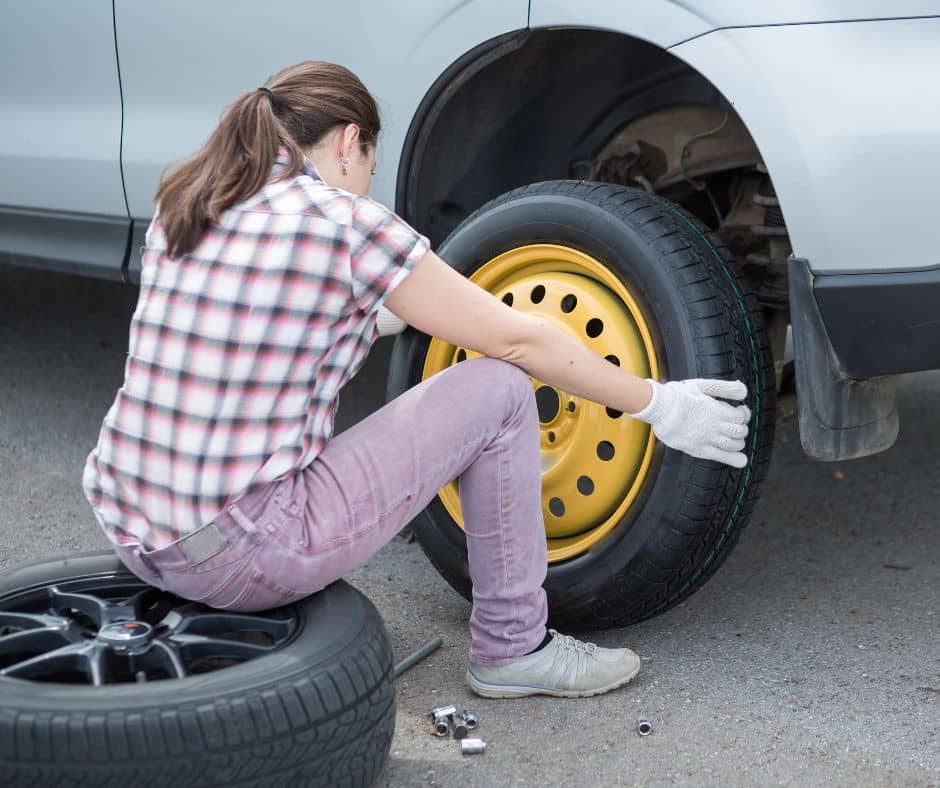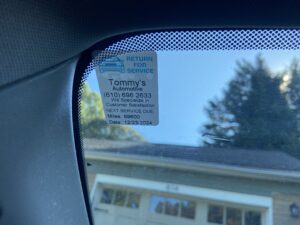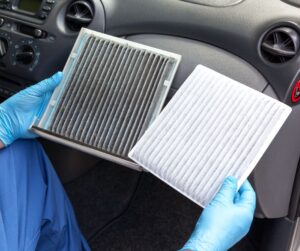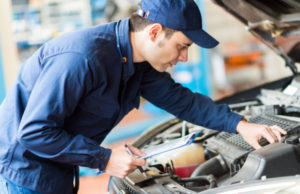
The Importance of Regular Car Maintenance
Regular car maintenance is essential for the longevity and performance of a vehicle. Neglecting tasks such as oil changes, tire rotations, and brake inspections can lead to costly repairs down the line. Educating your college driver about the significance of these maintenance tasks can help them avoid unexpected breakdowns and keep their car running smoothly.
Understanding the Basics of Car Maintenance
Start by teaching your student the basics of car maintenance, including:
- Oil Changes. Explain how often to check and change the oil based on their vehicle’s requirements.
- Tire Care. Tire maintenance is an important and easy aspect of car care. Show them how to check tire pressure and tread depth regularly, highlight the importance of rotating tires, and give them hands-on instruction for changing a tire.
- Brake Inspection. Teach them to listen for unusual noises and understand when brake pads need replacement.
- Fluid Levels. Discuss monitoring fluid levels, such as coolant, transmission fluid, and windshield washer fluid.
- Air Filters. Explain the importance of replacing air filters periodically to maintain engine efficiency.
Encourage them to refer to their vehicle’s owner’s manual for specific maintenance schedules tailored to their car model – if they have any questions, our team at Tommy’s is nearby and would be happy to help!
Car Maintenance Tips for College Students
 Budgeting for Car Maintenance
Budgeting for Car Maintenance
College students often operate with limited budgets, making it essential to understand the financial implications of car ownership. Discuss the typical costs associated with routine maintenance and potential repairs (and the benefits of efficient driving), encouraging them to set aside funds specifically for these expenses.
Creating a Savings Plan
Suggest establishing a dedicated savings account or fund for car maintenance. This approach helps prevent the need to use their general funds for unexpected repairs. Encourage them to contribute a small amount each month to build a cushion for future expenses.
Developing Maintenance Habits
Establishing good habits is crucial for ensuring your college driver stays on top of their car’s maintenance. Teach them to incorporate regular checks into their weekly or monthly routine.
Creating Car Maintenance Reminders
Teach them to set reminders in your student’s phone calendar to help them remember the essential tasks mentioned in this blog.
Empowering Your College Driver for the Road Ahead
By teaching your college student the importance of regular car maintenance and providing them with tools and resources, you’re helping them stay safe on the road while fostering lifelong responsible driving habits. Empower your college driver to take an active role in maintaining their vehicle; this knowledge will serve them well throughout their college years and beyond. For routine maintenance or service, or if your student has questions about their vehicle, contact Tommy’s today.

 Budgeting for Car Maintenance
Budgeting for Car Maintenance Oh, Canada! No, we aren’t singing their anthem . . . but we are breathing in their air, and that hasn’t been a good thing. If you have noticed the increase of smokey days around Pennsylvania this summer, we can thank our neighbors to the north. While you may feel you can breathe easy indoors or in your car as long as the windows are up, you would be wrong. When smoke particles in the atmosphere increase, breathing them in can cause a lot of health damage. That is why using HEPA filters in your homes and cars is critical.
Oh, Canada! No, we aren’t singing their anthem . . . but we are breathing in their air, and that hasn’t been a good thing. If you have noticed the increase of smokey days around Pennsylvania this summer, we can thank our neighbors to the north. While you may feel you can breathe easy indoors or in your car as long as the windows are up, you would be wrong. When smoke particles in the atmosphere increase, breathing them in can cause a lot of health damage. That is why using HEPA filters in your homes and cars is critical. It can be one of the most miserable experiences in a person’s life . . . dealing with a dead battery on the side of the road in frigid temperatures. As cold temperatures set in, it is crucial to inspect your battery before you end up in that situation. If you have a dead battery, your vehicle will not start. This can happen because of cold weather or a battery that is worn out. Because a battery is such a simple part of your car, it is easy to forget this vital inspection when cold weather sets in.
It can be one of the most miserable experiences in a person’s life . . . dealing with a dead battery on the side of the road in frigid temperatures. As cold temperatures set in, it is crucial to inspect your battery before you end up in that situation. If you have a dead battery, your vehicle will not start. This can happen because of cold weather or a battery that is worn out. Because a battery is such a simple part of your car, it is easy to forget this vital inspection when cold weather sets in. All Pennsylvania vehicles are required to be inspected each year at an Official PA Inspection Station. This is to keep the roads safe for Pennsylvanians.
All Pennsylvania vehicles are required to be inspected each year at an Official PA Inspection Station. This is to keep the roads safe for Pennsylvanians.